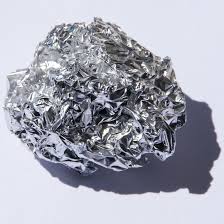记忆方法
记忆“aluminium”这个单词,可以将其分解为“al”和“uminum”,然后将“uminum”联想到“u”是重金属的“um”(类似“gold”中的“gold”),因此“aluminium”是铝(一种金属)的名称。这种方法通过关联其金属特性来帮助记忆。
以上内容由AI生成, 仅供参考和借鉴
英语词源
- aluminium
-
aluminium: [19] Aluminium comes from a coinage by the English chemist Sir Humphry Davy, who discovered the metal. His first suggestion was alumium, which he put forward in Volume 98 of the Transactions of the Royal Society 1808: ‘Had I been so fortunate as … to have procured the metallic substances I was in search of, I should have proposed for them the names of silicium, alumium, zirconium, and glucium’.
He based it on Latin alūmen ‘alum’ (alum is a sulphate of aluminium, and the word alum, a 14th-century borrowing from French, derives ultimately from alūmen; alumina is an oxide of aluminium, and the word alumina is a modern Latin formation based on alūmen, which entered English at the end of the 18th century); and alūmen may be linked with Latin alūta ‘skins dried for making leather, using alum’.
Davy soon changed his mind, however, and in 1812 put forward the term aluminum – which remains the word used in American English to this day. British English, though, has preferred the form aluminium, which was mooted contemporaneously with aluminum on grounds of classical ‘correctness’: ‘Aluminium, for so we shall take the liberty of writing the word, in preference to aluminum, which has a less classical sound’, Quarterly Review 1812.
=> alum - aluminium
- see aluminum.
权威例句
- 1. Copper, brass and aluminium are separated and remelted for reuse.
- 铜、黄铜和铝被分门别类重新熔化以进行再利用。
- 2. All parts are machined from top grade, high tensile aluminium.
- 所有零件都是用顶级高强度铝加工而成。
- 3. The building is impeccably modernist: glass, aluminium and grey.
- 这座楼完全是现代主义风格:采用玻璃和铝质材料,以灰色作为基调。
- 4. The greenhouses come equipped with a ventilating system and aluminium screen door.
- 那些温室送来时配有通风系统和铝制纱门。
- 5. Aluminium looks heavy but actually it is very light.
- 铝看起来很重,实际上却很轻.

